Discover WBSRocks: Business Growth with Enterprise Software and Digital Transformation
WBSRocks: Business Growth with Enterprise Software and Digital Transformation

WBSRocks: Business Growth with Enterprise Software and Digital Transformation
Author: Sam Gupta
Subscribed: 15Played: 586Subscribe
Share
© 2025 WBSRocks: Business Growth with Enterprise Software and Digital Transformation
Description
WBSRocks podcast features in-depth conversations on customer experience, digital transformation, supply chain, eCommerce, industry 4.0, and enterprise software categories such as CRM, ERP, or analytics suites. The purpose of the show is to help CFOs, COOs, CEOs, and business owners with their daily commercial, operational, or financial challenges by taking a deep dive into business cases and processes, technology strategy and architecture, transformation initiatives, and business models. The show also offers an independent analysis of technology trends, various enterprise software vendors and solutions, and their mergers and acquisitions. Subscribe today to stay on top of digital transformation trends!
802 Episodes
Reverse
Send us a text AI-native ERP systems are rapidly reshaping the enterprise software landscape by challenging long-standing assumptions about how ERPs are selected, implemented, and evolved over time. As AI becomes embedded directly into configuration, development, and daily workflows, practices once viewed as risky—such as extensive customization, rapid iteration, or even building ERP capabilities in-house—are becoming increasingly viable. Rising commercial software costs are further forcing e...
Send us a text A mix of product launches, acquisitions, funding rounds, and legal developments illustrates how enterprise software vendors are simultaneously accelerating innovation while navigating increasing market and regulatory complexity. Salesforce’s updates to Marketing Cloud Next and Agentforce 3, alongside new capabilities from Cordial and SAP, point to a continued push toward AI-driven engagement, automation, and cloud-native commerce experiences. Strategic acquisitions by Accenture...
Send us a text Public sector organizations operate under a fundamentally different set of constraints and expectations than their private-sector counterparts, making CRM selection a strategic decision rather than a purely technical one. Before reviewing our Top 10 Public Sector CRMs in 2025, it is important to align on how success is defined in this environment, where accountability, transparency, and service continuity often take precedence over revenue growth or pipeline velocity. Governmen...
Send us a text A wave of funding announcements, acquisitions, and product launches highlights how quickly AI, data, and customer engagement technologies are converging across the enterprise. Significant financings for PhysicsX, Vultr, and Vellum signal strong investor confidence in platforms that support AI-native workloads, applied intelligence, and modern infrastructure, while Capgemini’s acquisition of WNS underscores growing demand for large-scale, technology-enabled business transformati...
Send us a text Higher education institutions operate in an environment where academic mission, financial sustainability, and long-term stakeholder relationships must coexist—placing unique demands on enterprise systems. Before reviewing our Top Higher Education CRM Systems in 2025, it is essential to clarify how CRM success is defined in this context, where engagement extends far beyond traditional recruitment or advancement functions. Universities must manage complex, multi-decade relationsh...
Send us a text Recent announcements across enterprise software, AI platforms, and services point to an accelerating convergence of intelligence, automation, and scale. Product expansions from Deltek, CallMiner, and Hightouch reflect a push to embed advanced analytics, personalization, and contextual intelligence directly into operational systems, while launches from Intellistack and Kognitos highlight growing demand for no-code and neurosymbolic approaches that reduce dependence on scarce tec...
Send us a text Selecting the right CRM in the K-12 education sector is less about sales enablement and more about orchestrating complex, long-lived relationships across an entire educational community. Before we present our Top K-12 Education CRMs in 2025, it is important to align on what success looks like in this context—where the “customer” spans students, parents, teachers, administrators, district leadership, and external partners, each with distinct engagement cycles and data needs. K-1...
Send us a text Recent product launches, acquisitions, and funding announcements underscore how rapidly enterprise software and AI platforms are evolving across both horizontal and vertical use cases. Vendors such as Orbit Analytics, Deltek, and Advantive are extending core operational solutions with deeper analytics, compliance, and decision-support capabilities, while companies like Pipefy, Aquant, Kognitos, and Intellistack are pushing AI further into everyday workflows through agents, retr...
Send us a text Innovation districts sit at the intersection of real estate, research, community building, and economic development—making them fundamentally different from most commercial enterprises. Unlike traditional organizations with a single revenue engine or operating model, innovation districts are ecosystems designed to orchestrate universities, startups, investors, public agencies, and anchor institutions within a shared physical and digital footprint. Their success depends less on ...
Send us a text Manufacturing ERP systems may appear similar on the surface, but their differences become stark once you look underneath—especially for industries where precision, engineering complexity, and compliance cannot be compromised. While many vendors promote similar modules, only specialized ERPs are architected to handle the rigorous demands of electronics, wire harness, and other engineering-intensive sectors. This webinar will unpack why industry-specific systems consistently outp...
Send us a text This week’s enterprise technology updates highlight major movements across ERP support, AI automation, testing, analytics, and workflow orchestration. Rimini Street extended support for all SAP ECC 6.0 and S/4HANA releases through 2040, offering long-term stability for organizations navigating SAP’s transition timeline. Zencoder launched Zentester, an AI-powered end-to-end testing agent designed to transform vibe coding into enterprise-grade engineering, while Acorn secured $12...
Send us a text When evaluating the top 10 large-company CRMs in 2025, it’s essential to ground the discussion in how we define this segment: organizations with more than 5,000 employees and over $1 billion in annual revenue, representing the true enterprise tier. Unlike startups, small businesses, or even mid-sized firms, large enterprises operate with global scale, complex geographic footprints, and deeply layered organizational structures that demand far more from their CRM systems. Their p...
Send us a text The aerospace and defense industry operates in one of the most demanding environments, where compliance, traceability, and precision are non-negotiable—yet many manufacturers still rely on generic ERPs that were never built for aviation. As a result, they pour millions into customizations just to meet basic FAA, DoD, and OEM requirements, only to end up with fragile systems that struggle under the weight of cert linkage, serial and lot tracking, shelf-life controls, and calibra...
Send us a text This week brought a surge of AI-driven innovation across CX, martech, enterprise software, and development tooling. Treasure Data introduced five new AI suites aimed at elevating customer experiences, while Uniphore unveiled a suite of AI marketing agents and Zeta Global provided more details on its Zeta Answers platform—each reinforcing the rapid expansion of AI across customer engagement. In the enterprise and ERP ecosystem, Accenture launched its Distiller agentic AI framewo...
Send us a text When evaluating the top 10 mid-sized CRMs in 2025, it’s important to anchor the discussion in how we define the mid-sized market: organizations with roughly 100 to 5,000 employees and annual revenues from about $100 million to $1 billion. While some vendors might loosely label this range as enterprise, its operational profile aligns more closely with a true mid-sized segment—complex enough to require mature workflows, multi-layer security, and structured organizational planning...
Send us a text This week’s customer experience and marketing technology updates highlight a clear shift toward deeper intelligence, tighter collaboration, and more secure enterprise-grade platforms. CallMiner strengthened its conversational analytics footprint with the acquisition of VOCALLS, while Contentstack expanded its composable ecosystem by launching the new Data and Insights solution. Mosaicx introduced the next generation of its Engage platform, and Salesforce continued its march tow...
Send us a text When evaluating the top 10 not-for-profit CRMs for small businesses in 2025, it’s essential to understand how this market is segmented, starting with organizational size and industry context. While many assume not-for-profits operate with simpler technology needs, their CRM requirements can actually be far more complex—often extending into grant management and other operational layers, especially when the ERP footprint remains intentionally lean. For this analysis, we classify ...
Send us a text The enterprise tech landscape saw a wave of AI-driven advancements this week, with major vendors pushing deeper into intelligent automation and unified customer experiences. Sage introduced its AI-powered Copilot to Sage X3, while Storyblok rolled out two new integrations to strengthen content operations. Workday expanded its ecosystem with a new AI Agent Partner Network and Gateway, and AdDaptive Intelligence broadened its AI-powered advertising platform. In the CX space, Call...
Send us a text In the not-for-profit startup CRM segment—particularly for organizations with fewer than 20 employees—the environment is lean, centralized, and heavily dependent on a single CRM administrator who shapes processes across the organization. At this early stage, scattered systems and data silos are manageable, so CRM platforms prioritize simplicity, usability, and light integrations over complex workflows or deep data structures. Budget limitations also push these organizations tow...
Send us a text The enterprise software landscape continues its rapid AI-driven transformation, as vendors double down on automation, intelligence, and ecosystem connectivity. NT Logistics and Qued deepened their partnership to enhance logistics optimization, while Priority Software unveiled aiERP, embedding AI directly into core ERP workflows. Progress Software introduced AI-powered tools to accelerate developer productivity, and Sage rolled out AI Supply Chain Intelligence for SMBs alongside...


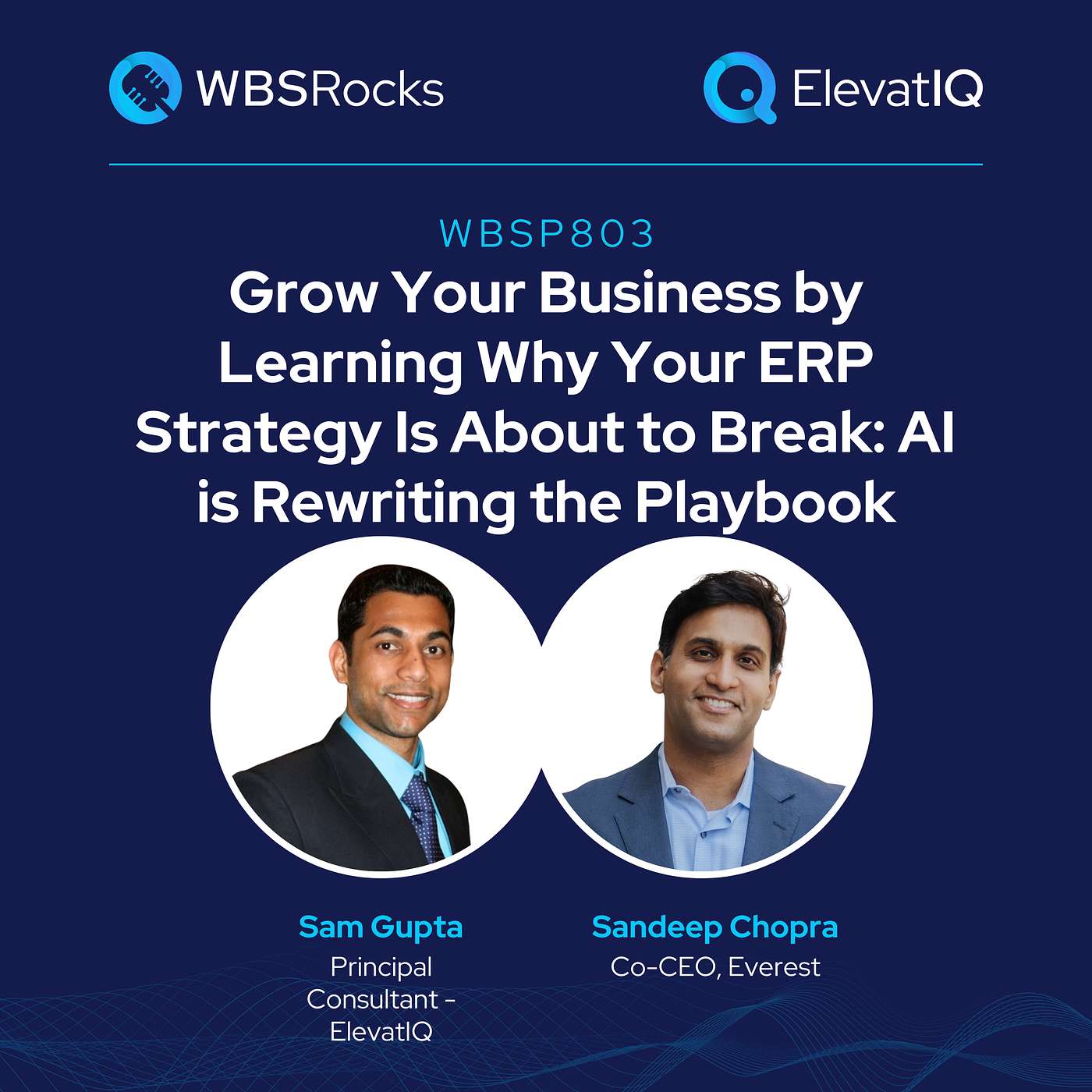








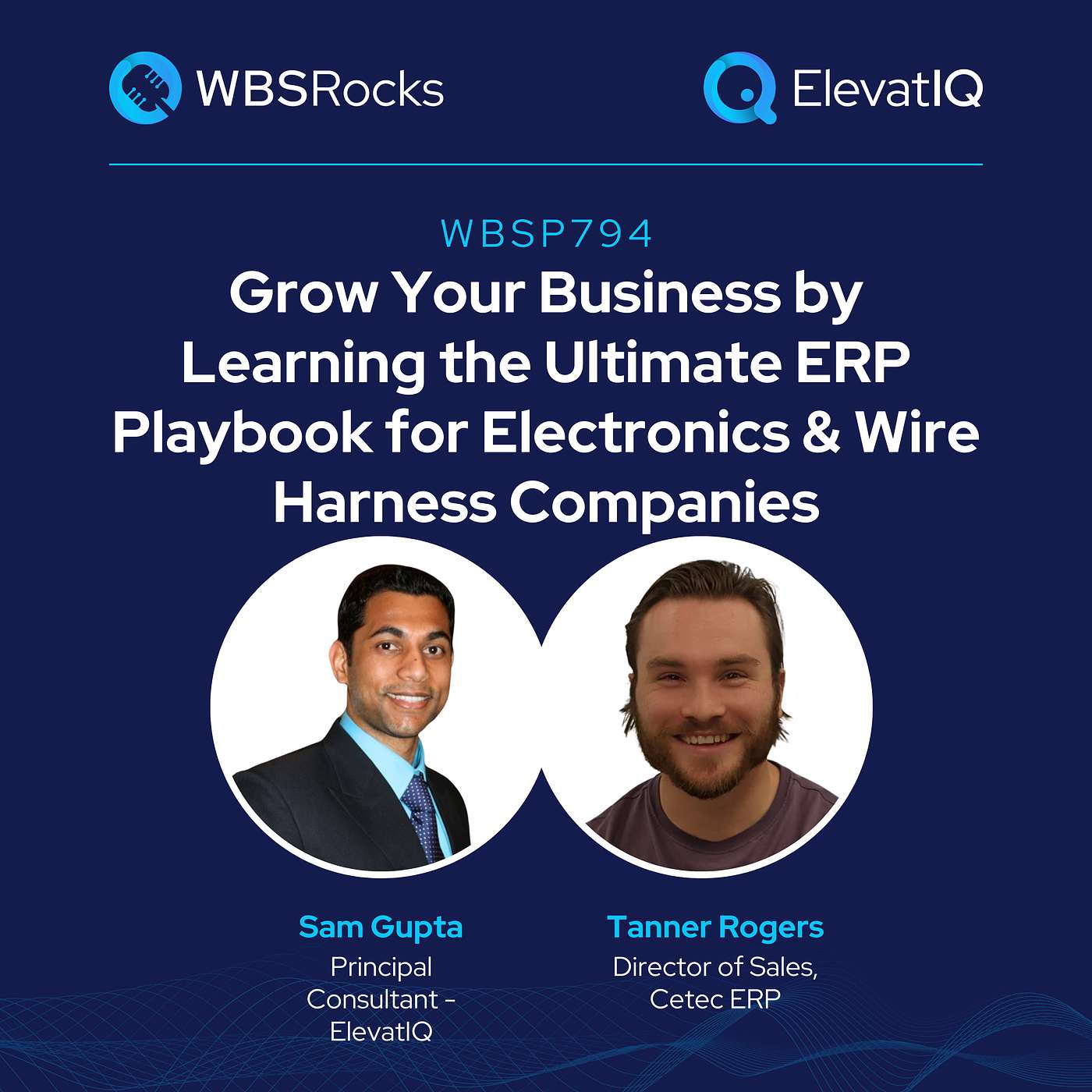
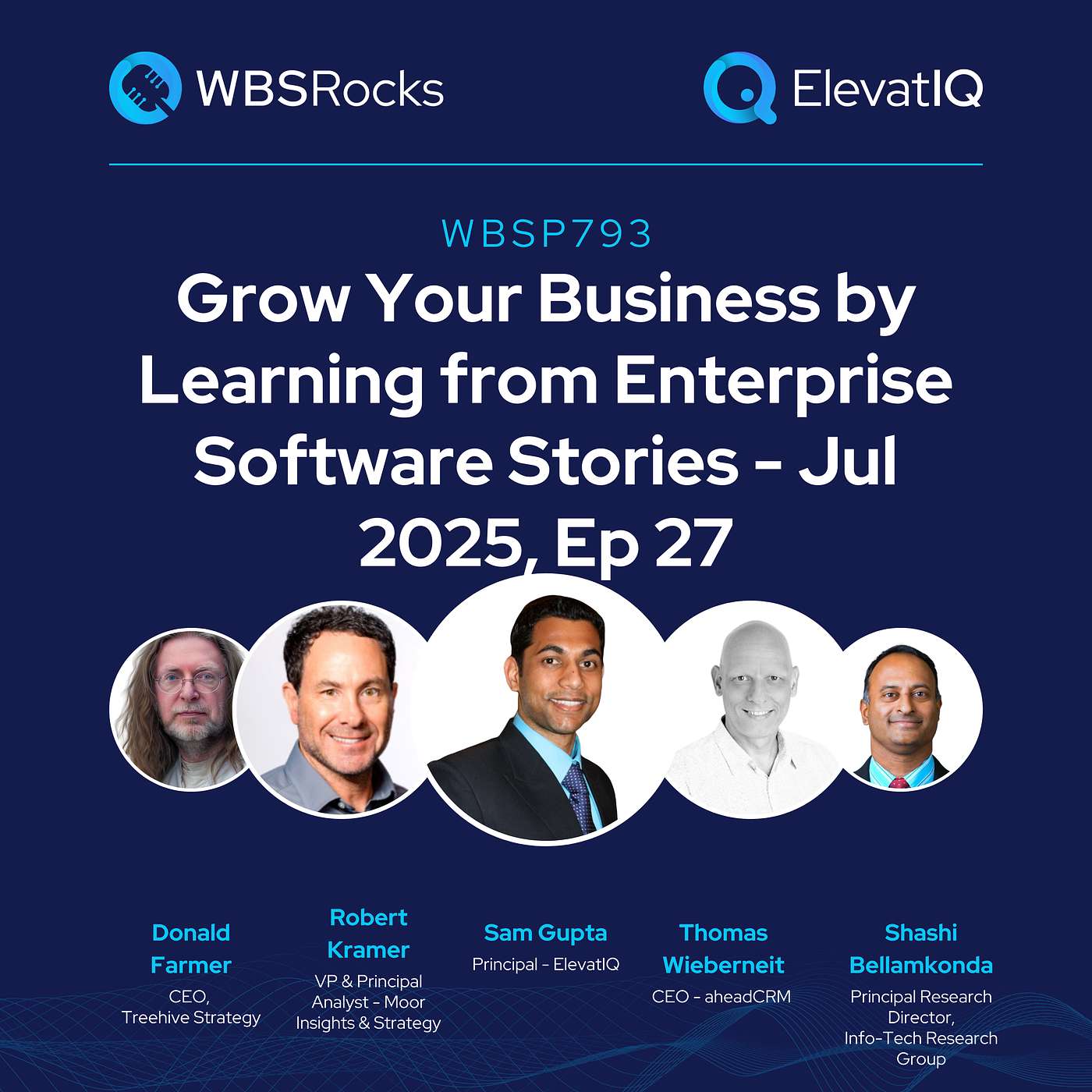
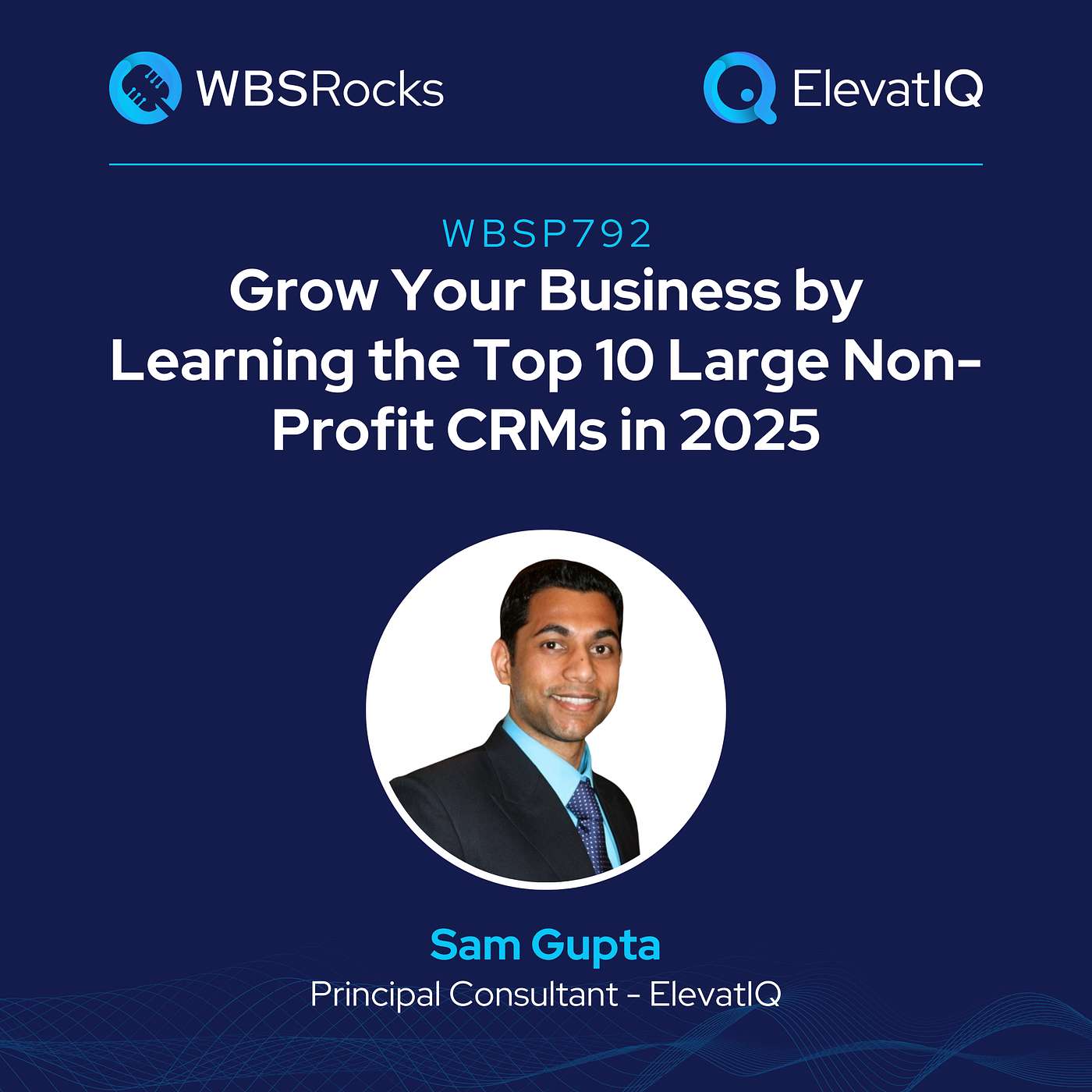
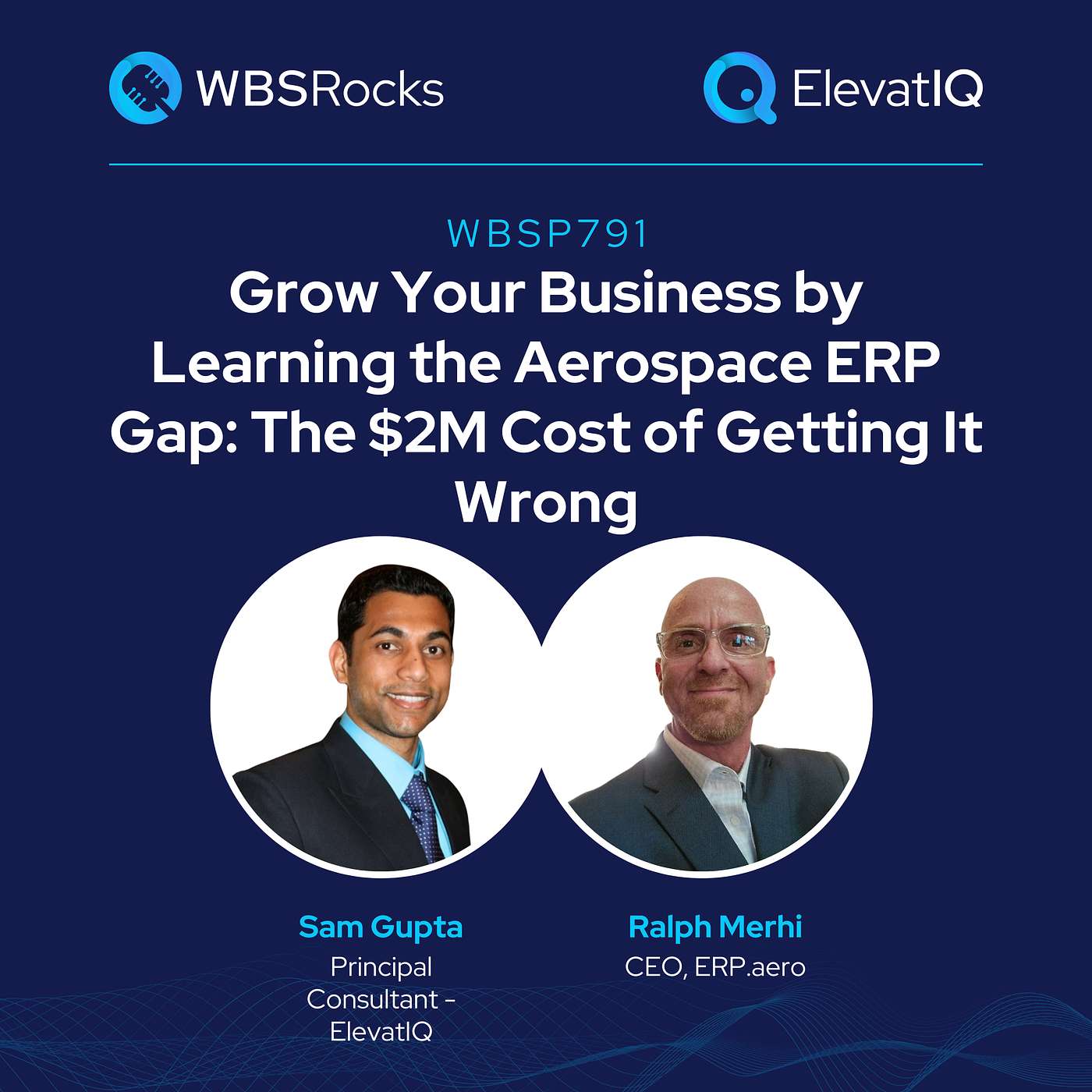
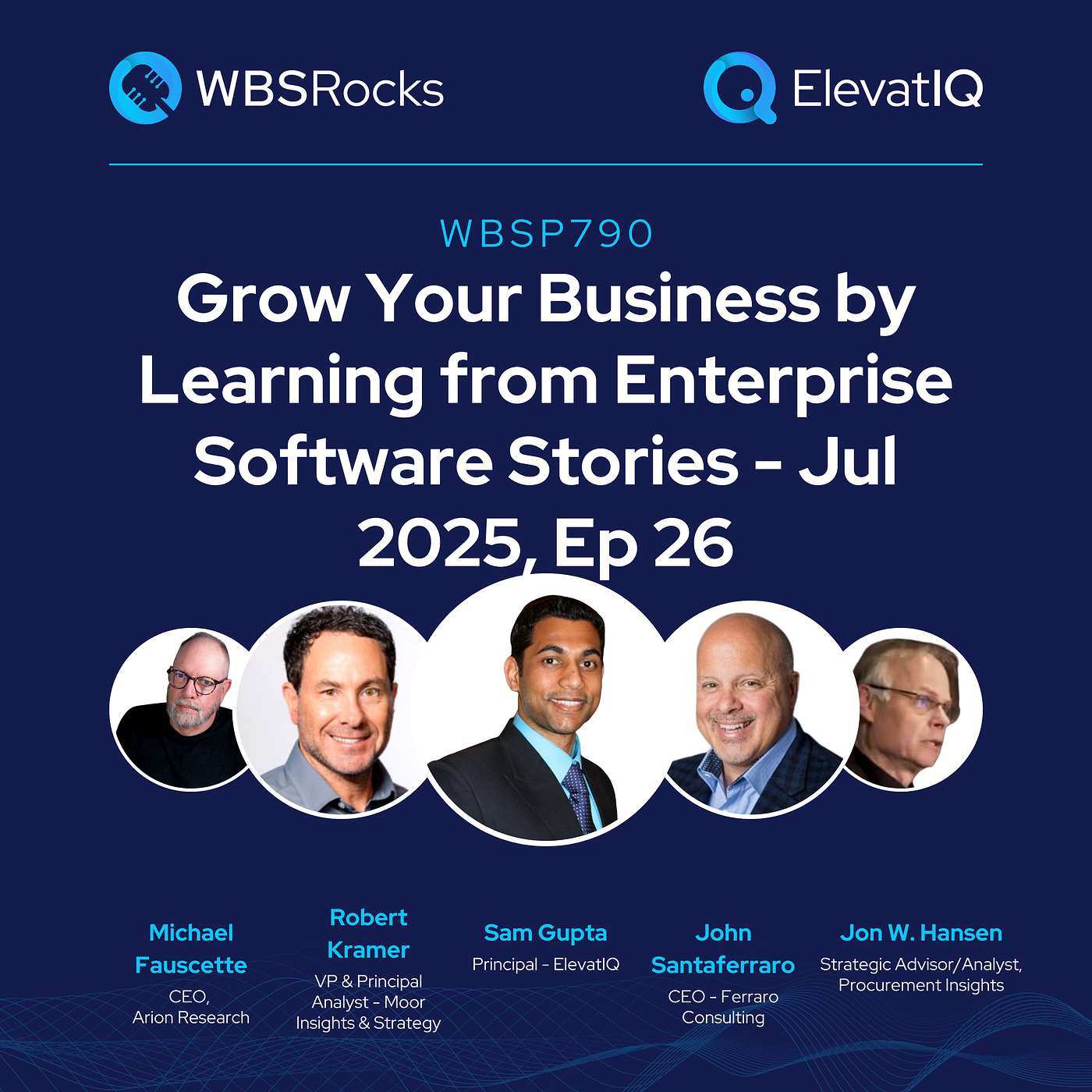

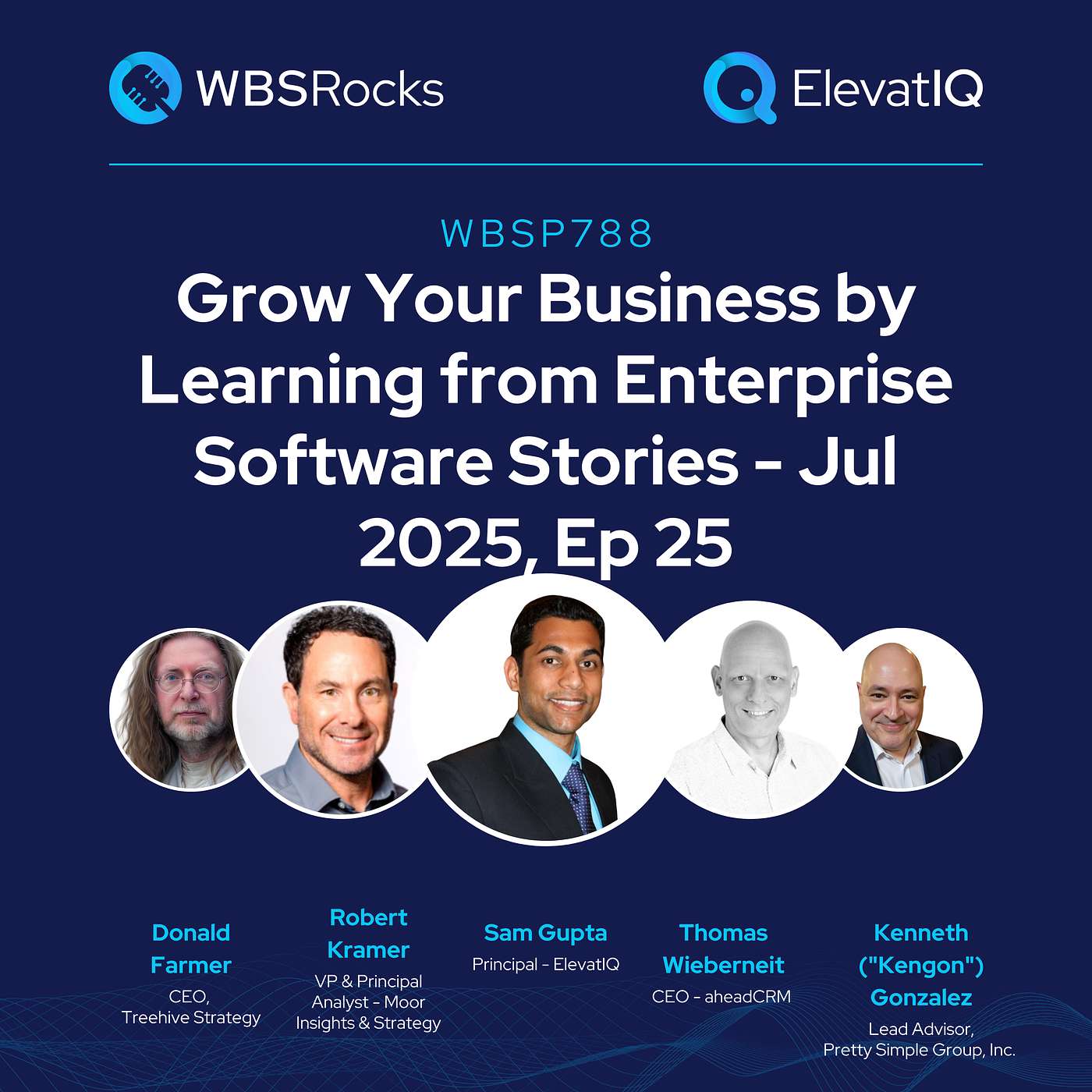

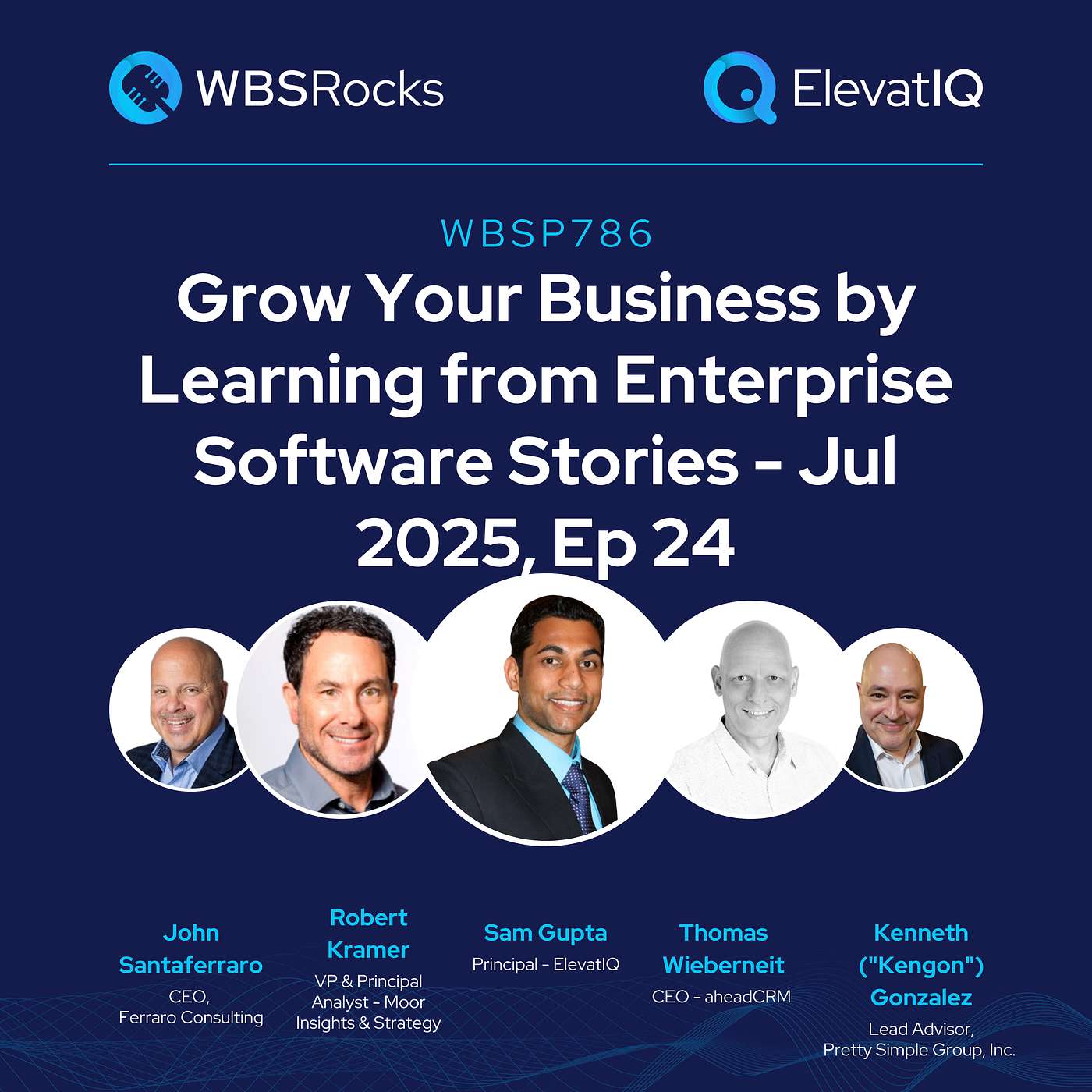





Understanding how enterprise software can streamline operations is crucial for businesses looking to improve efficiency and profitability. ERP systems play a key role in integrating financial management, supply chain logistics, and project tracking into one seamless platform. For construction companies, having industry-specific solutions can make a huge difference in managing costs and keeping projects on schedule. Platforms like https://firstbit.ae/ offer tailored ERP systems designed to help businesses centralize their processes, reduce inefficiencies, and make data-driven decisions with real-time insights
Hi WBSRocks thanks for sharing your informative great podcast.